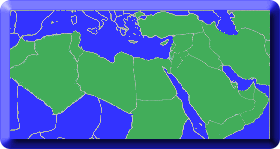
Topics in Middle Eastern and North African Economies
Document Type
Article
Publication Date
5-1-2019
Journal Title
Topics in Middle Eastern and North African Economies
Volume
21
Issue
1
Publisher
Middle East Economic Association and Loyola University Chicago
Abstract
Is having one native-born parent an advantage for the child of an immigrant? Much of the classical literature on immigrant assimilation would suggest that children with one native-born and one foreign-born parent (generation 2.5) should fare better than those whose parents are bothforeign-born (generation 2.0) Generation 2.5 individuals should have greater access to native networks, face less discrimination, and better bicultural awareness. Despite these seeming advantages, recent studies suggestthe opposite,withgeneration2.5havingworse educational outcomes thantheirgeneration 2.0 counterparts. Inthis paper,weutilize propensityscore matching to evaluate differences in educational outcomes between these two groups. We estimate that on average, generation2.5havenearlyhalfayearlesseducationthantheirgeneration2.0counterpartsdespite having better-educated parents onaverage. A number of explanations for this are explored, witha higher degree of bilingualism for generation 2.0,foreign-bornparents investing more inchildren's education, and access to highly skilled immigrant networks being the most promising explanations.
ISSN
2334-282X
Recommended Citation
Blackford, Cheyenne and Foad, Hisham, "The Generation 2.5Curse? ComparingEducationalOutcomes for Children of Immigrant Intermarriages in the United States". Topics in Middle Eastern and North African Economies, electronic journal, 21, 1, Middle East Economic Association and Loyola University Chicago, 2019, http://www.luc.edu/orgs/meea/
Creative Commons License

This work is licensed under a Creative Commons Attribution-Noncommercial-No Derivative Works 3.0 License.
Copyright Statement
© 2019 The Authors



Comments
Presentation of the articles in the Topics in Middle Eastern and North African Economies was made possible by a limited license granted to Loyola University Chicago and Middle East Economics Association from the authors who have retained all copyrights in the articles.